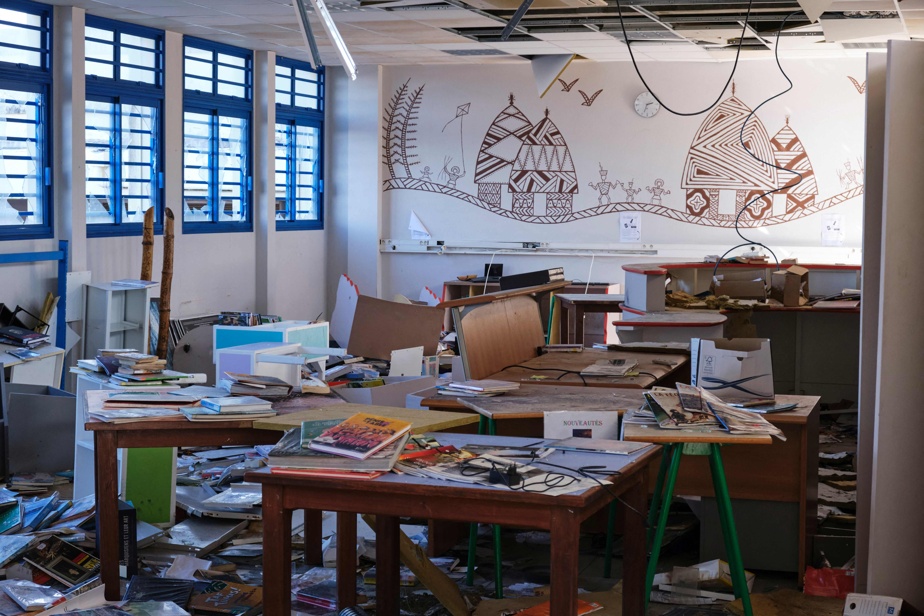(Noumea) Shy smiles, the joy of seeing friends again and a fair bit of worry. Some children in New Caledonia returned to school on Monday in a context that is still tense due to the riots that arose from the electoral reform rejected by the separatists.
A sign of a very slow return to normal after five weeks of unrest, the time for recovery also came on Monday for Nouméa international airport, while the entry into force of the nighttime curfew was postponed by 6 p.m. to 8 p.m.
“Have you found any friends, darling? », whispers a concerned mother to her boy, bright blue polo shirt in the colors of the primary school located in the Magenta district.
It’s 7:30 a.m., children and parents are flocking without excitement for an unusual start to school.
In its streets, the capital of the French territory of the South Pacific still bears the marks of the violence: burned buildings, including schools, roadblocks of separatists, counter-blockades of non-independenceists…
“We are not ready to return to normal life, it’s impossible! », annoys David, who has come to drop off his 10-year-old daughter, not “more impatient than that” to return to school.
“It will take a few years. We don’t get much help, we feel a little abandoned by the government. We rely on the local, we have people from the neighborhood who monitor the schools,” assures the man who does not wish to give his name.
A police car drives past the school and then the bell rings. ” Good day ! », says Wanni to his two daughters, aged seven and nine.
The mother “hopes to return to a normal life” and tries to reassure herself by telling herself that “the rioters will not come here, they are children.”
His daughters have not really asked him questions about the events but feel a certain fear because of the noises at night, “shooting, bombs”.
Police officers and gendarmes – 3,500 have been deployed on the archipelago of some 270,000 inhabitants – are still mobilized every night to clear dams, intervene on fires and repress disturbances to public order, sometimes punctuated by clashes, according to a source close to AFP.
According to the latest official report, the riots left nine dead, including two gendarmes, and caused very significant material damage.
Eight-year-old Ephraim did not hide his worry and his fear of finding his school burned, says his mother, Lucinda Boden. On Monday, she wanted to ensure that the children were “well taken care of”, that “the entrance was securely closed”.
“We’re still in Magenta, it got hot here,” explains the mother. “It would be good if everything could gradually resume. It’s quite a heavy situation to live in.”
For these primary school pupils, the return to school on Monday went well, assured the High Commission of the Republic, which represents the French State.
That of La Tontouta international airport was a little more disrupted.
The road leading there, cleaned in recent days by the police from the roadblocks made, dismantled and rebuilt by the separatists, was blocked for a few hours in the morning.
About twenty kilometers from the terminal, vehicle traffic was interrupted by barrages of large stones and branches, some still on fire, AFP journalists noted.
Earlier in the morning, a procession carrying the body of a 26-year-old Kanak who died on June 3 after an exchange of fire with off-duty gendarmes was blocked on the road.
Alice Chekeu confides that she “took a lot longer (than usual) to get to the airport” but that she “was lucky to get through”.
This 24-year-old Frenchwoman, who came to settle in New Caledonia in November, had “not at all planned” to leave the archipelago.
“But here, we are in the medical field, so it was complicated to work. We decided to leave,” she said from the depopulated airport hall.
Alice Chekeu had booked a return flight a month ago, the first four were canceled.
For her, the fifth will be the right one. Only two planes were scheduled to take off from Noumea on Monday, according to the High Commission, with 400 passengers on board.




